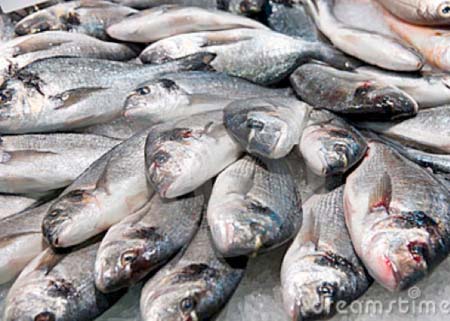
The
Food and Agricultural Organization (FAO), in collaboration with the Department
of Fisheries, organized a three-day capacity building for fishing communities
in the industry.
The
training was held to build capacities of the fishing communities to improve in
fishing handling, processing, quality control and waste management and for
community based organizations to be strengthened and maintain effective
sustainable management.
The
training, which brought together large number of participants across the
country, was held at the Nana Conference Centre from 19-21 October.
The
Training is funded by the FAO Technical Cooperation Programme (TCP).
In
his official opening on behalf of the minister of Environment, Climate Change
and Natural Resources, Director of Fisheries Matarr Bah said: “This FAO-TCP
project is for the development of the artisanal fisheries in The Gambia with
the main objective of assisting the Government to enhance the development of
artisanal fisheries sub-sector and related activities through responsible
fishing so fish stocks are maintained.
He
said fish quality and safety cannot be overemphasised because it has a direct
bearing on the wellbeing of the people in terms of improved nutritional status
and general health conditions of the citizenry.
Mr
Bah said the Ministry of Environment, Climate Change and Natural Resources
“will undertake the necessary steps and reforms to ensure that Fisheries Act of
2007 and the Fisheries regulations of 2008 reflect the current realities on the
ground”.
He
said: “The TCP programme will make copies of the Act and regulations to the
fishers so they are better able to take full responsibilities of protection and
conservation of the fisheries waters in their various localities of operations
to curb the practice of illegal unreported and unregulated fishing activities.”
Delivering
a speech on behalf of FAO Country Representative, Sira Njai Sanyang, programme
officer for FAO, said the fisheries sector is important economically and
socially in that the sector provides sustainable livelihoods, proteins of high
nutritional value and revenues for fishing communities and the nation as a
whole.
In
The Gambia, she noted, the fisheries sector contributes to the national economy
and the livelihoods of the population, with the potential to make significant
contribution to improved food security, as the fisheries sector contributes 12%
of the GDP.
“An
estimated 200,000 people are directly or indirectly dependent on artisanal
fisheries and its related activities for their livelihoods.
Fish
and fishery products are important ingredients of diet in The Gambia with an
estimated catches of 53,000 tonnes in 2015 from the artisan sub-sectors.
It
is also an important source of income for those engaged in fish processing and
marketing many of whom are women.
“Artisan’s
fish processing contributes significantly to the socio-economic development of
the country and the livelihoods of the people in The Gambia in which women form
the majority in fish processing and trade activities.
She
further noted that the training for the fisheries extension staff and fisheries
operators in low-cost storage and packaging of different types of fisheries
end-products came in a timely manner.
It
is envisaged that it will enhance the capacities of community-based organizations
and other relevant stakeholders for the development of the fisheries value
chain.
This,
Mrs Sanyang said, would enable the reduction of post-harvest losses, and would
help produce quality fish and fish products, all resulting in high value added
and increased income for fisheries and other fisheries value chain actors.
According
to her, FAO had been providing an unabated support to the fisheries sector of
the country.
She
thanked the Gambia government for the “excellent relationship” FAO “enjoys with
government partners”, as she reaffirmed our commitment to deepening
collaboration and cooperation with the Government of The Gambia.



